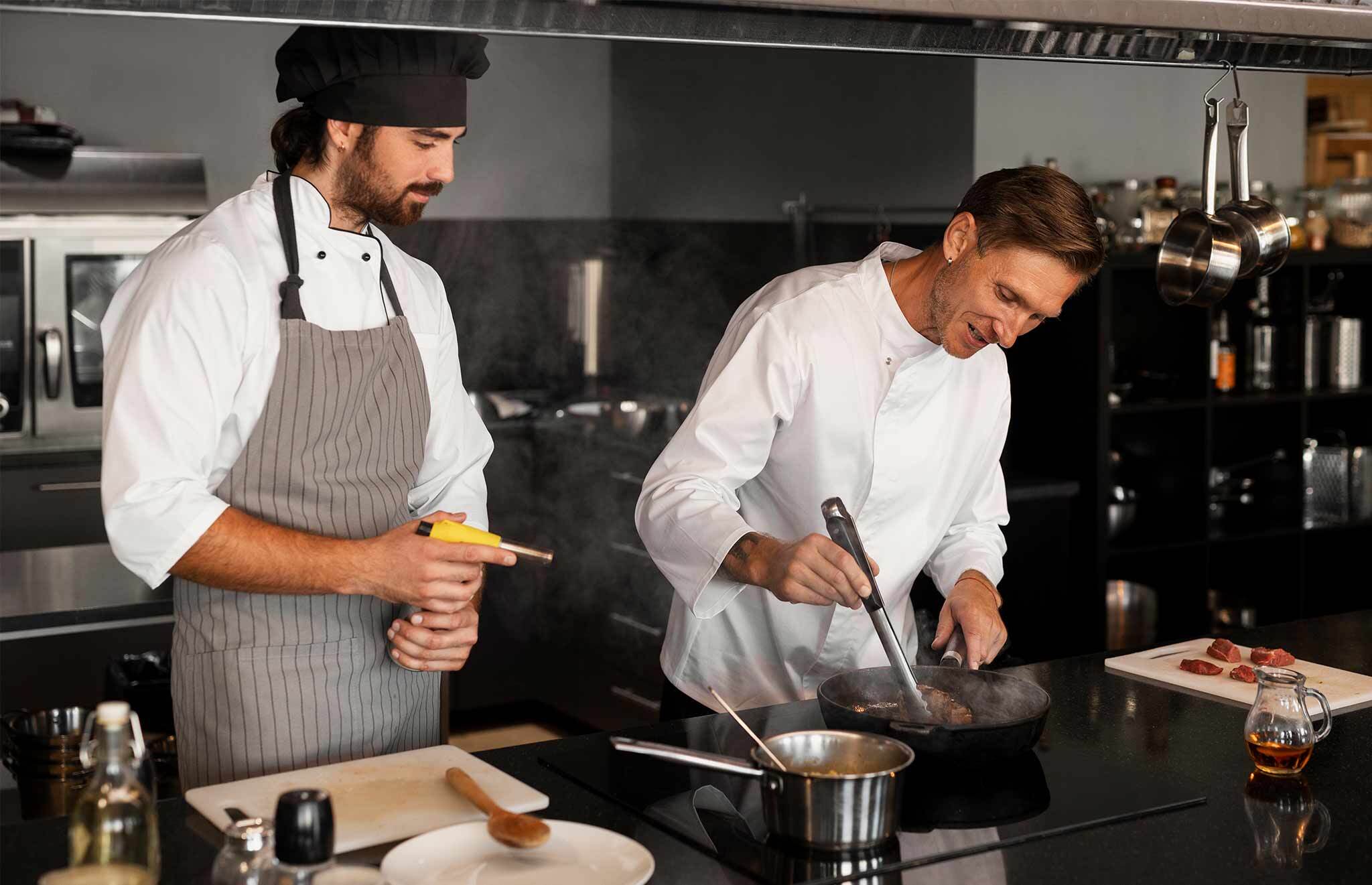
Chef-Specialist
Designed for students desiring to start a food service business or become a personal chef, this program includes the material contained in the Cook Basic diploma program and the Entrepreneurial Skills for Chefs certificate course.
Exclusive to New Castle College, Career Action Plan Services, (CAPS) has been developed to provide the maximum in assistance to students and graduates in launching their career in the culinary arts field. Our professional graduate services team guides you in making the right choices and decisions for your career.








